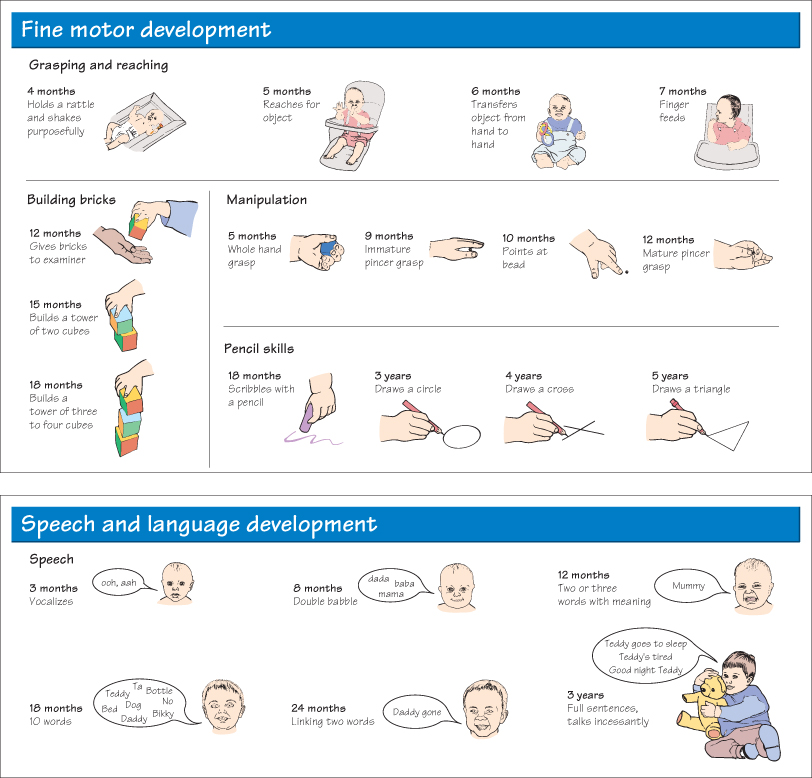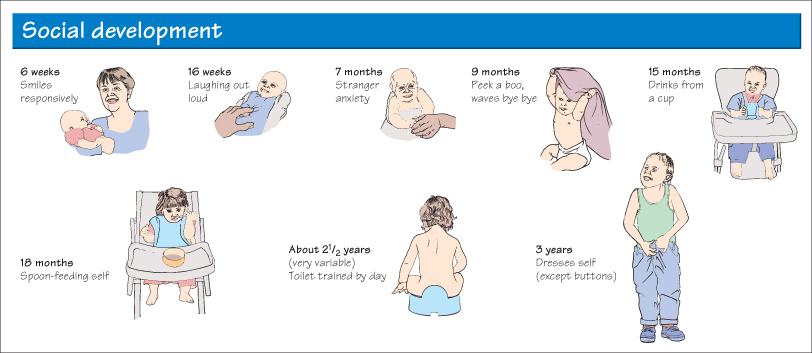

An assessment of developmental progress is important at every clinical encounter with children. It is important to understand the normal progression of development in the early years and to develop skills in examination to assess development in babies and children of different ages.
Milestones
It is hard to remember all the milestones, so learn the essential ones given in the table.
Milestones that Are Essential to Remember
| Age | Milestone |
| 4–6 weeks | Fixes to faces with eyes |
| Smiles responsively | |
| 6–7 months | Sits up unsupported |
| 9 months | Gets to a sitting position |
| 10 months | Pincer grasp |
| Waves bye-bye | |
| 12 months | Walks unsupported |
| Two or three words with meaning | |
| 18 months | Feeds self with spoon |
| Points to things | |
| Tower of 3–4 cubes | |
| Throws a ball without falling | |
| 24 months | Sentences of 2–3 words |
| Running | |
| Kicks a ball |
Developmental Warning Signs
There is a wide variation in the age at which milestones are met. Key warning signs of significant developmental problems are listed in the table.
Key Developmental Warning Signs
| Age | Warning sign |
| At any age | Maternal concern |
| Regression in previously acquired skills | |
| 10 weeks | No smiling |
| 6 months | Persistent primitive reflexes |
| Persistent squint | |
| Hand preference | |
| Little interest in people, toys, noises | |
| 10–12 months | No sitting |
| No double-syllable babble | |
| No pincer grasp | |
| Not chewing | |
| 18 months | Not walking independently |
| Less than 6 words | |
| Persistent mouthing and drooling | |
| 2½ years | No 2–3 word sentences |
| Not responding to 1-word commands | |
| Not turning single pages | |
| No symbolic play | |
| 4 years | Unintelligible speech |
KEY POINTS
- Develop your examination skills by assessing the development of any preschool child you encounter.
- Correct for prematurity, but remember premature babies are at increased risk of developmental delay.
- Early recognition aids diagnosis of underlying disorders and allows the child to access targeted developmental therapy.
- See Chapter 38 for causes of delayed development.
Only gold members can continue reading. Log In or Register to continue



